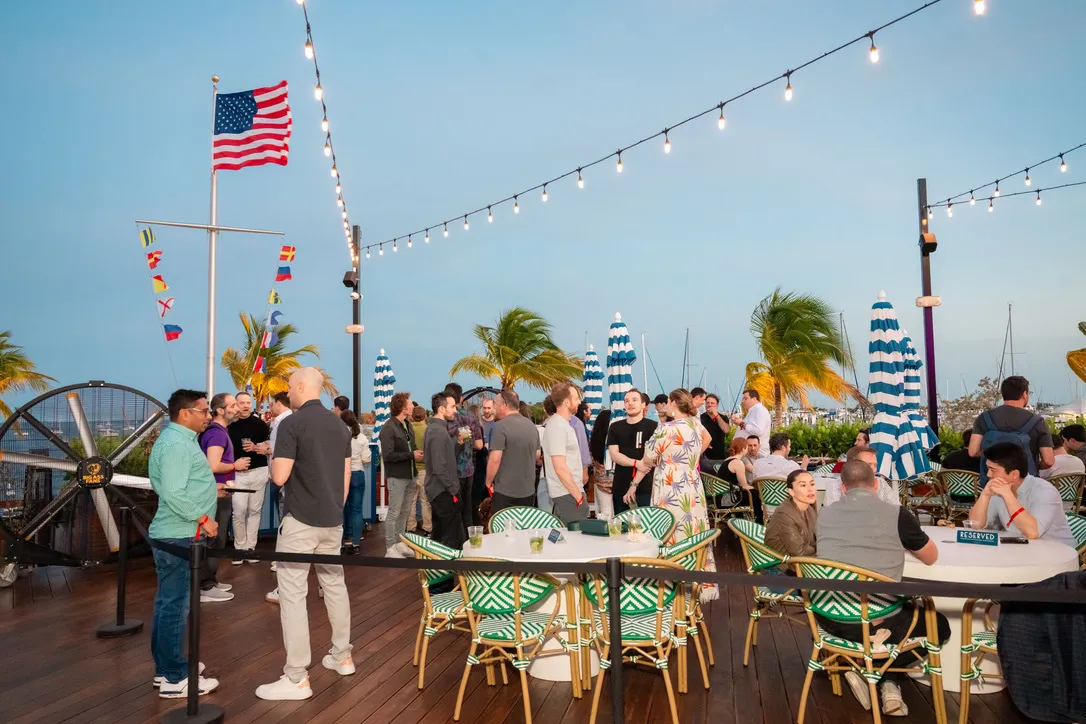Back to Basics —Enterprise Founders’ Day

Ten Takeaways from boldstart Founders Day 2024
Two weeks ago, boldstart partnered with Crew Capital to host a Founder’s Day, bringing together founders at different stages for a series of sessions on topics like product-market fit, pricing, how to time hiring for key roles, and zero to one marketing.
Here’s the top ten takeaways from the founders at the event:
1. Just Ship Sh** — Really Really Fast
It’s classic because it’s true. The faster you can learn and iterate, the further you’ll go.
2. Keep zooming in
To ship sh** really fast, you need to know what to ship. While you do eventually want to be in a large market, at the beginning you want to get as specific of feedback as possible. Founders shared about how you can Zoom in on the role, the industry, the type of organization, and the other tools you’re using.
As Eliot would say, having a narrow hull speed helps you go faster and learn what works. As Ethan Schechter, VP Sales at Snyk pointed out — if you have 30 customers who all buy you for something different, that’s not a repeatable business and no one can help you build it.
Narrow your target user until you hear consistent feedback, and then expand into adjacent areas. Anna Debenham shared more on how Snyk did it in her piece on talking about PMF.

3. Know what “early” signals you’re looking for
There’s some standard “tests” for PMF, but it can also be good to think about what comes before that.
We learned that founders bring different perspectives based on their background.
- A sales focused founder might be looking for “the hook that gets me into a customer conversation” or referrals from paying customers.
- A service focused founder might look for unsatisfied users making the same requests.
- A process focused founder might look at the stages — does the problem resonate? Does the product solve that problem? Does the pricing match that product?
4. Sell before you build
At boldstart, we’re working with technical founders from day 0 of their journey. Unsurprisingly, builders want to build first! A large number of founders talked about their success they had selling ahead of product.
5. Pricing isn’t final or monolithic
A common misconception we hear is that you “decide pricing” and then move on. Pricing is an iterative experiment, and changing it quickly means you are learning more about what customers value.
6. That said, there’s a few pricing best practices…
- Keep it simple!
- It’s worth having multiple pricing tiers, and always add one above what you think the “top” is.
- Don’t be afraid to state the high price, and add a discount after. More than one founder had stories about getting far more than they expected! Plus, creating agreements with ramp pricing sets you up to show expansion over time.
7. Think above and below the line
Many technical products have a day-to-day user, and a separate buyer. A book that many founders recommended across sessions was Selling Above and Below the Line.
8. Your first ten customer contracts are about more than price
Jake Stein from CommonPaper helped moderate a session on setting up your first ten contracts. Thinking about these design partners and early customers goes much deeper than just the price.
- How often will your design partner give feedback? Who will be on those calls?
- How much support will you provide, and on what type of SLA?
- Will you get a reference or case study from the customer? That can be the thing that helps land the next ten customers.
- What major points will you end up having to concede? Some buyers have terms they never wave on — several founders were familiar with a marquee company that always requires unlimited liability.
9. Figure out the AI workflow first, then the details
It wouldn’t be 2024 without an AI-related takeaway. Across the board founders agreed that things are still so early that it’s all about getting the right user experience, first. Once you have something that feels right, focus in on accuracy and cost. And take advantage on all the credits that major providers are sharing!
10. Suffering is part of the experience — often on all fronts at once
Ed opened his keynote by talking about Jensen Harris’ recent speech at Stanford, and in particular this excerpt:
And Character is not formed out of smart people but from people who have suffered. So I wish upon you ample doses of pain and suffering.
This topic came up again while he interviewed Guy Podjarny, founder at Snyk about the toughest moments in the company.

As founders opened up, pretty much founder has had a moment where something has gone not to plan in both their personal life, and their company — at the same time. Those are the truly trying moments, and Building the right ecosystem is what helps you through handling both at once.
We’re looking forward to seeing everyone again in 2025!
